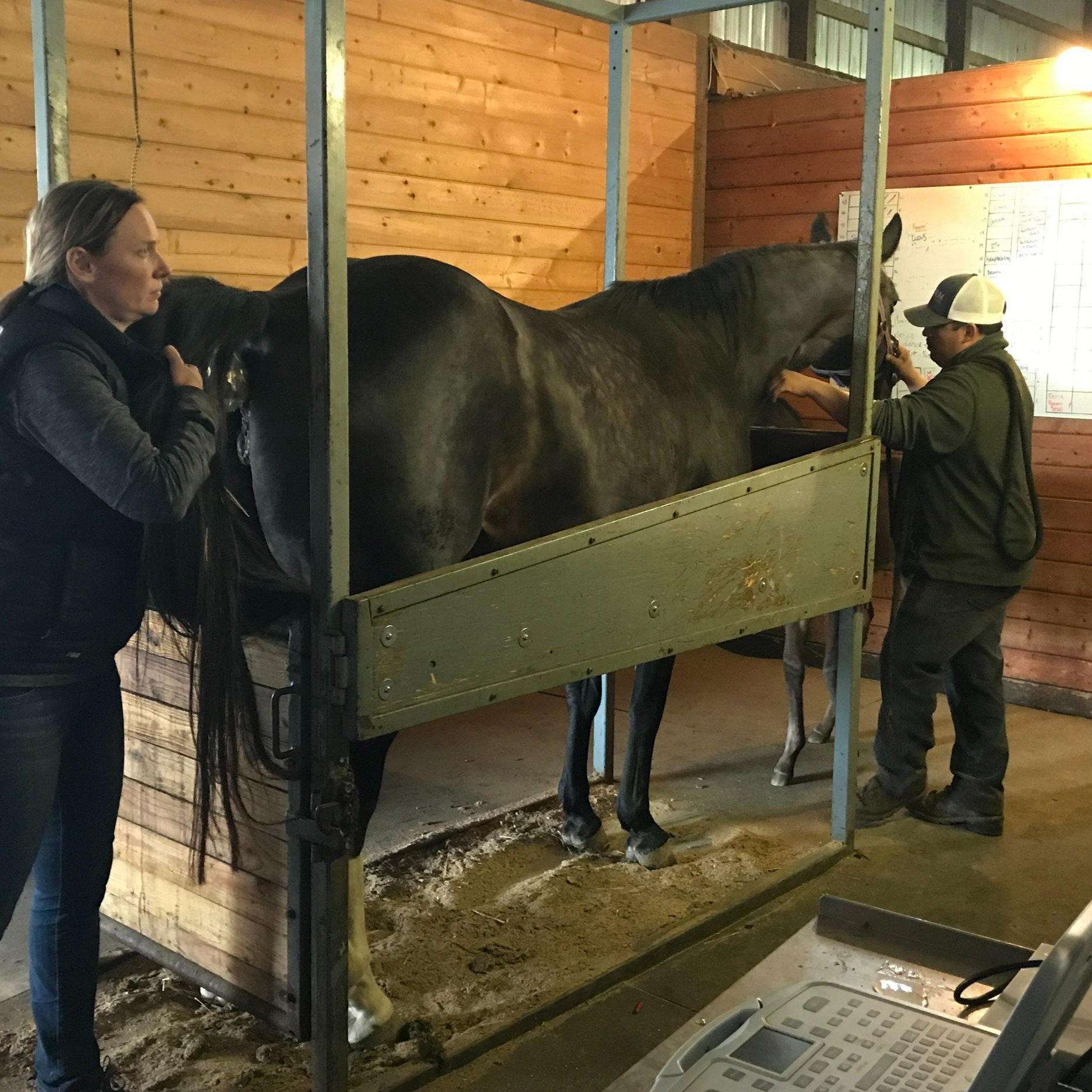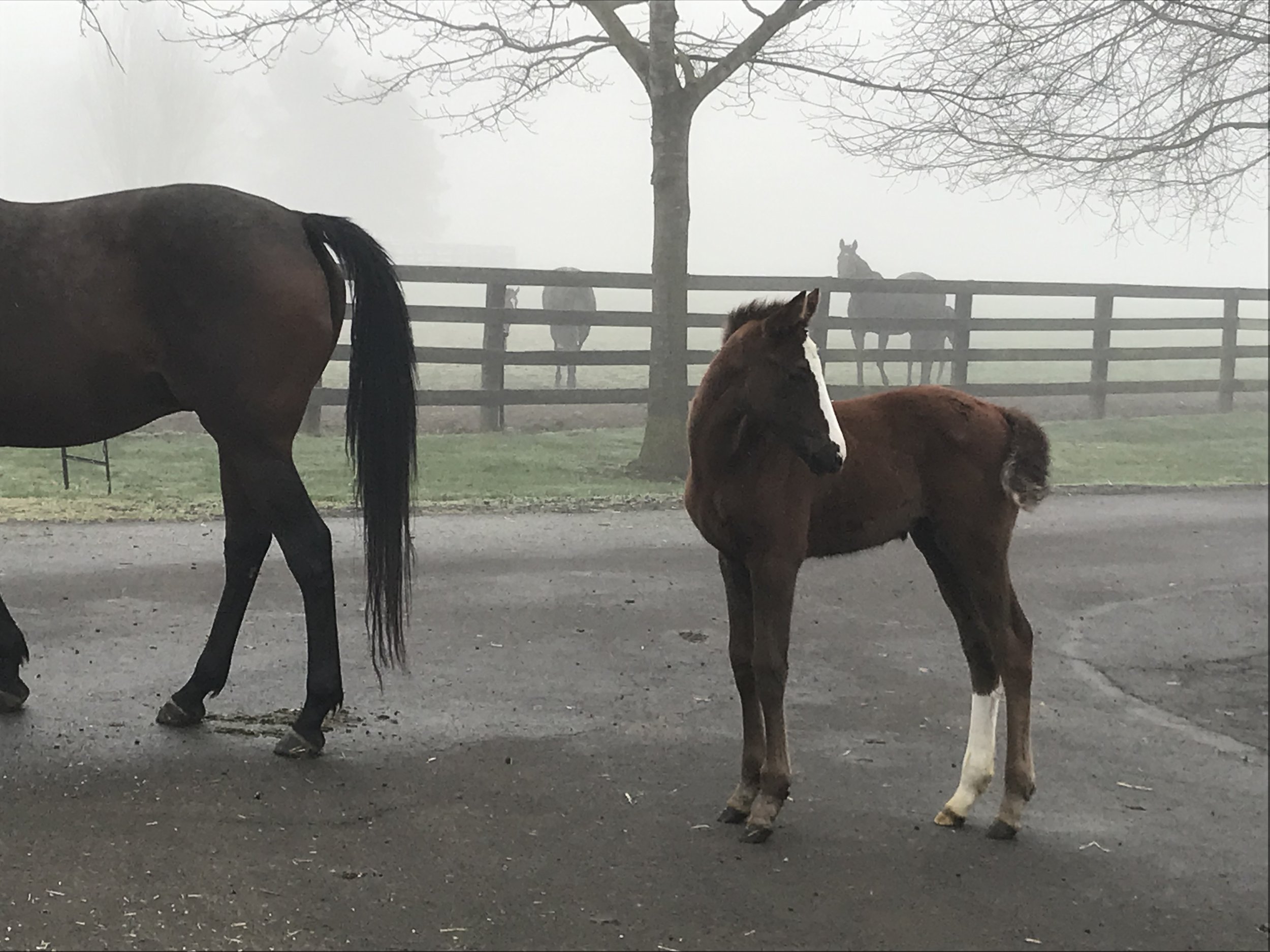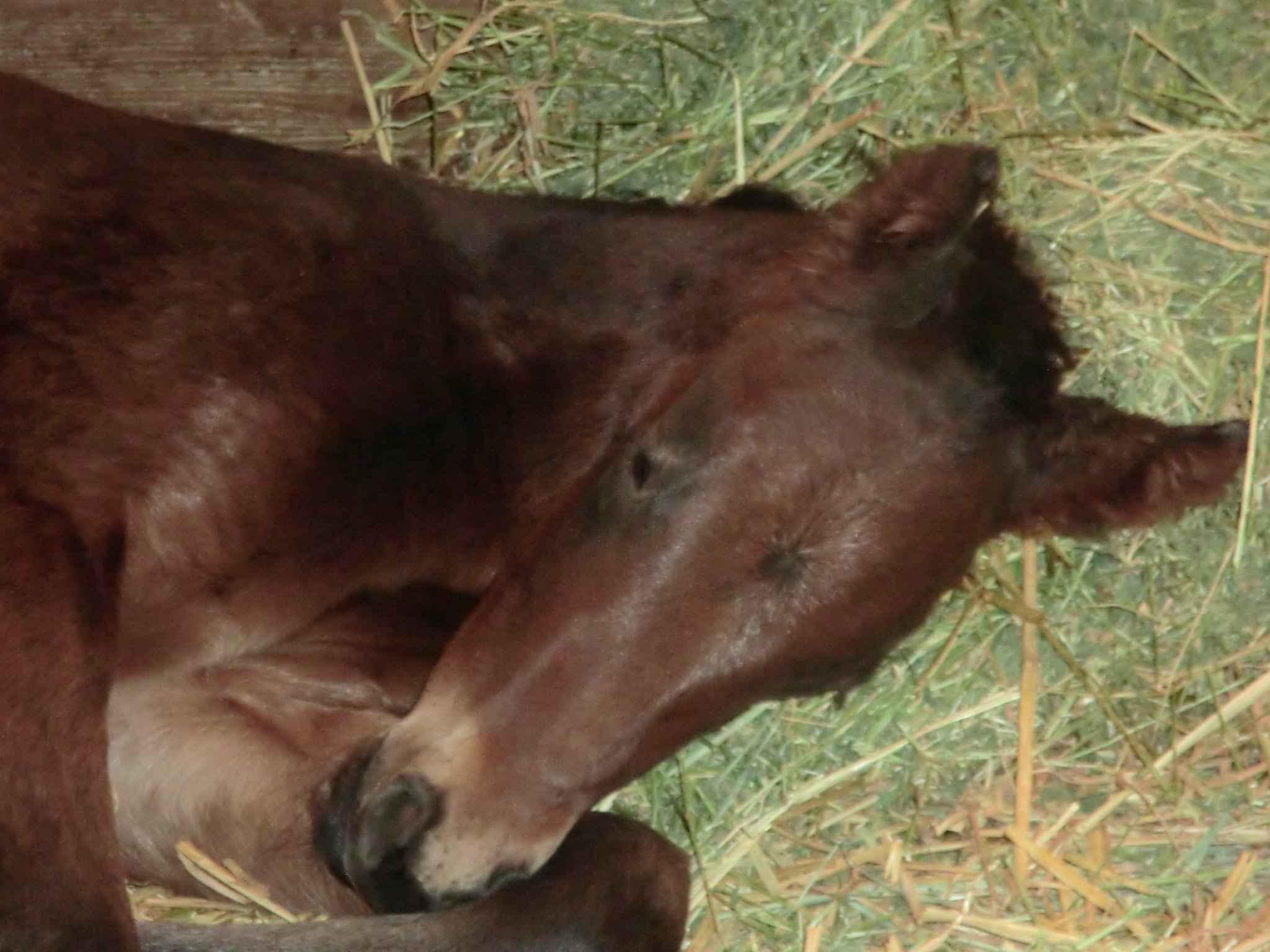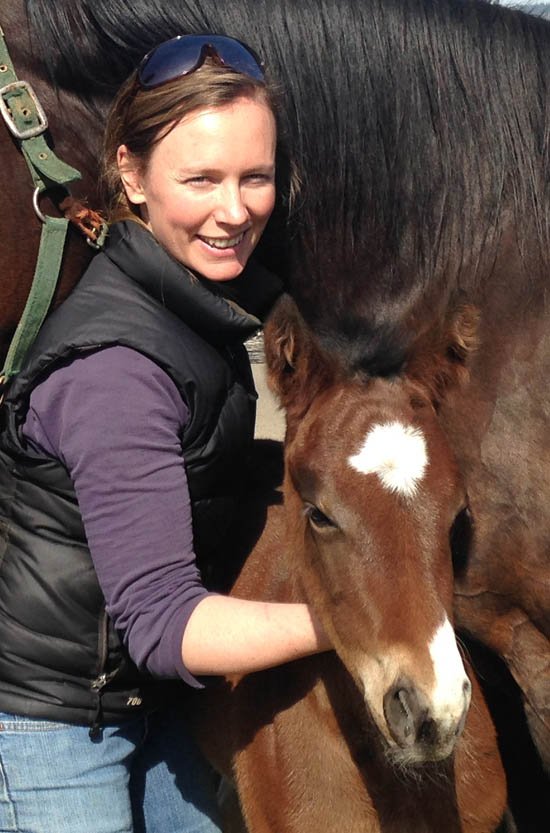Equine Reproduction Services
Our experienced equine reproduction veterinarians at Oakhurst focus on all aspects of horse reproduction, from evaluating and enhancing fertility to assisting with the breeding process. We provide a range of services to meet your needs:
Mare Reproduction Services
Breeding Soundness Examination
Estrous Cycle Monitoring
Artificial Insemination with fresh, cooled, or frozen semen
Embryo Transfer
Pregnancy Diagnosis
Twin Reduction
High-risk Pregnancy Management
Obstetrics
Reproductive Surgery
Reproductive Health Management
Mare Dystocia
To maximize the likelihood of a successful breeding season for your mare, here are some valuable recommendations:
Light Management: If you plan to breed your mare early in the season or breed her back after foaling, it's important to start her under lights 60 days prior to the intended breeding date. Use a timer to have your barn lights on for 16 hours a day, or consider using an Equilume mask. Remember, mares also need 8 hours of darkness, so avoid leaving the lights on 24/7.
Nutrition: Ensuring a good nutrition plan for your mare at the time of breeding is crucial. Thin mares may have poor perineal conformation, which can lead to infections and late cycling. Providing a balanced diet with appropriate supplements can help optimize your mare's reproductive health.
Vaccinations: Consider your mare's vaccine status. Pregnant mares should be vaccinated against EHV-1 (equine herpesvirus-1) to prevent abortion, and some mares may require vaccination against leptospirosis as well. Additionally, pregnant mares need booster vaccines four to six weeks before foaling to provide antibodies for the foal through colostrum. If your mare will foal away from home or travel shortly after foaling, consider vaccinating against rotavirus. Mares traveling to new facilities should have their flu/rhino vaccine before the trip.
Sub-Fertile Mare Workup: If you have older mares or mares that have had difficulty conceiving, it may be beneficial to perform a comprehensive sub-fertile mare workup. This can include procedures such as an endometrial biopsy, uterine cytology, uterine culture, vaginal speculum exam, rectal exam, ultrasound, and breeding consultation. These evaluations can help identify any potential issues and guide appropriate management and treatment options.
Stallion Reproduction Services
Breeding Soundness Examination
Semen Collection and Evaluation (Fresh, Cooled or Frozen)
Semen Processing, Shipping and Storage
Reproductive Health Care
Phantom Breeding/Training
Infertility Management
A stallion’s success during the breeding season can also benefit with these recommendations:
Proper Nutrition: Ensure your stallion receives a well-balanced diet that meets his specific nutritional needs during the breeding season. A healthy diet rich in essential nutrients, vitamins, and minerals is crucial for optimal reproductive function.
Regular Exercise and Conditioning: Maintaining your stallion's fitness and conditioning is vital for his breeding performance. Regular exercise helps improve stamina, muscle tone, and overall reproductive health. A consistent exercise regimen can enhance his ability to mount mares or the phantom, and improve the quality of his semen. However, avoid overworking or exhausting your stallion, as it may have negative effects on his fertility.
Routine Veterinary Examinations: Schedule veterinary check-ups and reproductive examinations for your stallion before the breeding season begins. A thorough reproductive evaluation can help identify any potential issues or health concerns that may affect his breeding success. This may include semen analysis, testicular examination, and assessment of reproductive organs. Early detection of problems can lead to prompt treatment and better outcomes.
Proper Breeding Management: Implement effective breeding management practices to maximize your stallion's success. Consult your reproduction veterinarian to determine the optimal management approach for a breeding stallion based on factors such as fertility and libido.
New Foal Care
New Foal Exams
Nutrition
Health Monitoring
Hoof Care
Orthopedic Conditions
Digestive Problems
Dummy Foal Care
Madigan Foal Squeeze Procedure
Newborn foals with low IgG (immunoglobulin G) levels could indicate a condition known as failure of passive transfer (FPT). IgG is an essential antibody that is transferred from the mare to the foal through colostrum, the mare's first milk. It provides the foal with essential immune protection in the early stages of life.
FPT can occur if the foal fails to receive an adequate amount of colostrum or if the colostrum is of poor quality. In such cases, the foal's immune system may not develop properly, leaving it vulnerable to infections and diseases.
One potential treatment for foals with low IgG levels is a plasma transfusion. Plasma, which contains high levels of antibodies, can be sourced from healthy donor horses and administered to the foal via intravenous transfusion. This can help provide the foal with the necessary antibodies to boost its immune system.
If you suspect a foal has low IgG levels, it's essential to contact your veterinarian who can perform tests to confirm the diagnosis and recommend appropriate treatment options, which may include plasma transfusion or other interventions.
Contact us for personalized advice based on your specific needs and circumstances.
Give us a call at 503-554-0227 or email to staff@oakhurstequine.com with any questions!








